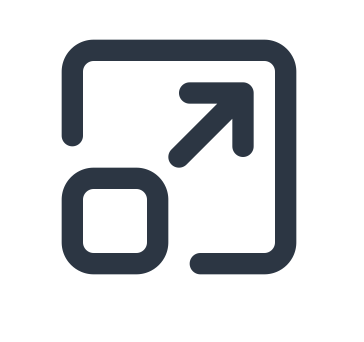the Hospital
Austral University Hospital is a teaching hospital and medical research centre in Argentina. Recognised as one of the leading hospitals in Latin America, it’s internationally recognised for its high standards and quality of care, including the Joint Commission International Gold Seal since 2013.
“The time-consuming nature of audit data collection on paper was very difficult.”
The problem
_______________________________
More time doing audits left less time to implement care quality improvement work.
To meet regulatory standards and continually improve upon patient safety and the quality of care provided, the nursing management team at Austral University Hospital regularly performs internal audits. They closely monitor a set of Key Performance Indicators (KPIs) in order to make timely interventions and continual care improvements.
Historically, conducting these audits had been slow, cumbersome and fragmented task requiring huge manual effort from frontline staff. Findings were collected by auditors on paper and then manually inputted into an Excel spreadsheet for analysis and reporting.
Given the busy nature of the hospital, the ward environment had often changed by the time the analysis of the completed audit was returned to the ward.
“The time consuming nature of audit data collection on paper was very difficult; having to input that information back into Excel and then carry out a data analysis… all necessary steps just to enable us to plan for quality improvement.”
The significant amounts of data frontline healthcare professionals were required to manually collect and report on meant that ultimately they had less time available for their primary role; caring for patients.
Staff were frequently frustrated searching for, extracting and sharing essential information buried in spreadsheets, isolated databases and even on paper. Google Drive was introduced in an attempt to improve the process; however the time-consuming nature of audit data collection and analysis remained. Information being captured and not analysed was becoming ‘dark data’ and leading to missed opportunities for improvement.
the Solution
_______________________________
Digitise, automate and simplify auditing processes to unlock more time for improvement work and patient care.
MEG’s mobile-first, digital Audit Management app was rolled out on mobile (and desktop) devices within a matter of days, enabling auditors to collect data on-the-go, even in poor-wifi areas. Austral’s nursing management worked with MEG’s team to customise the question set, workflow and reporting dashboard to meet the hospital’s requirements and mirror audit processes already familiar to staff. Auditors input data with more efficient click, swipe and scroll actions - saving on time and reducing errors.
Once audits are submitted, relevant personnel can be notified and results can be immediately presented and filtered by date, ward, auditor, speciality etc. to draw out the most meaningful data. As a result, the lead auditor can easily focus on areas with lower compliance scores and formulate action plans to close these gaps in a timely manner.
“The fact that we could collect the data digitally and immediately have access to reports meant we could give practical feedback to frontline staff and make interventions in real-time.”
Onboarding new MEG Audit and Incident Reporting users across +20 wards within the hospital was seamlessly managed by MEG’s Implementation and Customer Support teams. Despite the rapid and extensive roll-out, “very little instruction was needed” thanks to the simple, intuitive user-interface and customised forms designed to reflect pre-existing workflows. Staff reported finding MEG “very user-friendly” and the overall transition to a digital system as “very beneficial”:
“The team at MEG are always extremely responsive with any questions we have.”
The dedication and level of support offered by MEG throughout has been a huge value-add for Alejandra Parisotto, Director of Nursing. “[MEG] are open to using video calls, as well as email or messages” in response to any questions 24/7 which is an important factor for healthcare professionals who are constantly on the move and under increasing amounts of pressure.
The in-house support of native Spanish speakers has also been of huge importance in helping to develop a strong working partnership between the nursing leadership, frontline staff and MEG.
THE OUTCOME
_______________________________
Less time spent on administration creates more opportunity for patient care and responding to Quality Improvement initiatives resulting in improved patient outcomes and staff morale
MEG Digital Audit Management module has transformed HU Austral’s approach to auditing:
”We saved a lot of time previously spent on analysis as it’s now clearly visible to us where the problems are and this is where we concentrate our efforts. And with the extra time we are now saving, we invest it directly back into quality improvement initiatives and improving patient care.”
Resulting benefits include:
Digital, quick-capture forms allowed staff to prioritise the feedback
Automated reports and dashboards added hours back to the teams’ workdays
KPIs were brought to life instantly for busy frontline staff in the form of attractive, interactive easy-to-read reports, graphs and charts empowering them to quickly identify problem areas and make interventions in real-time.
Non-conformance issues were clearly visible enabling real-time intervention and action planning
Time saved is continually invested directly back into patient care, quality control and improvement.
MEG’s Audits & Inspections module offered HU Austral’s auditing staff the ability to collect and analyse data on any device in a timely manner in order to allocate more time to action their quality improvement activities. The substantial time saved on manual data collection, system input and analysis has added hours back into the teams’ workdays - time they’ve spent making things better.
You may also be interested in…
[Spanish Language Case Study] How MEG helped Guy’s & St Thomas’ NHS Foundation Trust revolutionised their IV Audit process, slash auditing and reporting times by +80%, while improving patient outcomes.
9,023 hours saved annually across the Trust
£252,000 savings through increased productivity
2 days implementation time in total












